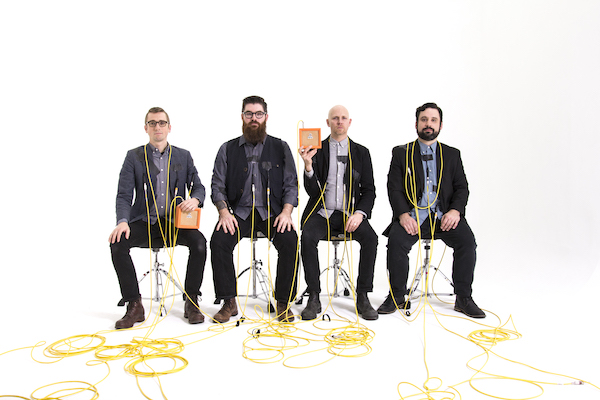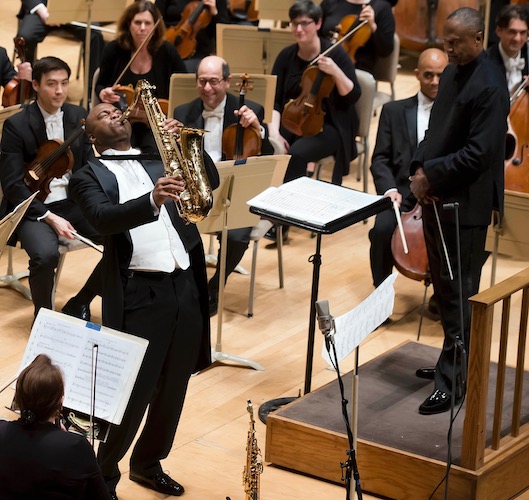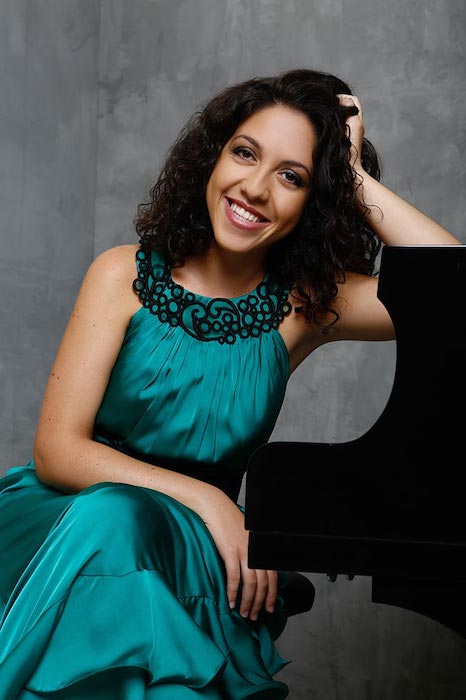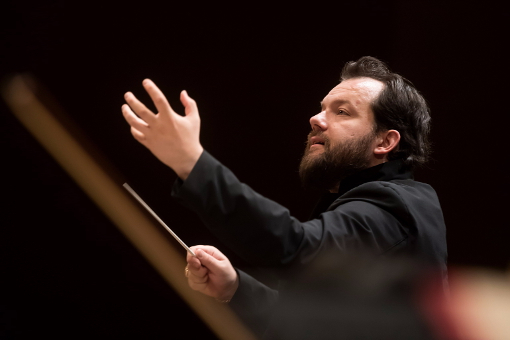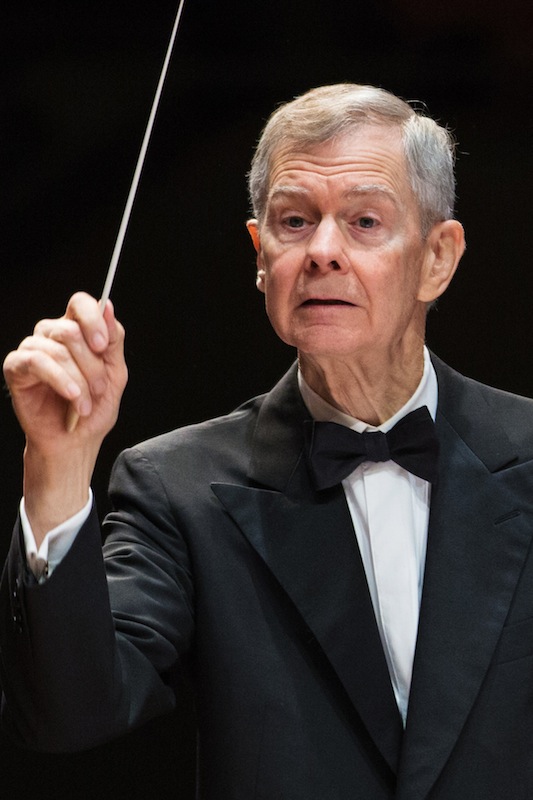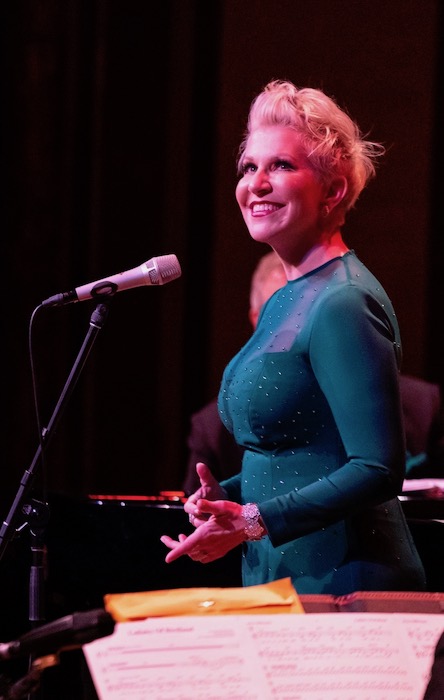Top Ten Performances of 2019

Photo: Winslow Townson
1. Thomas Adès’s Piano Concerto. Kirill Gerstein, Boston Symphony Orchestra/Thomas Adès.
Thomas Adès led the world premiere of his Piano Concerto with the Boston Symphony Orchestra in March. Performed by dedicatee Kirill Gerstein, the 30-minute score is one of Adès’s most daring and memorable creations. There is dazzling interplay between soloist and orchestra yet also a free-flowing sense of rhythmic interplay and almost Gershwinesque lyricism. Gerstein’s full-blooded performance with the composer leading the BSO was easily Boston’s top musical event of 2019. (AK)
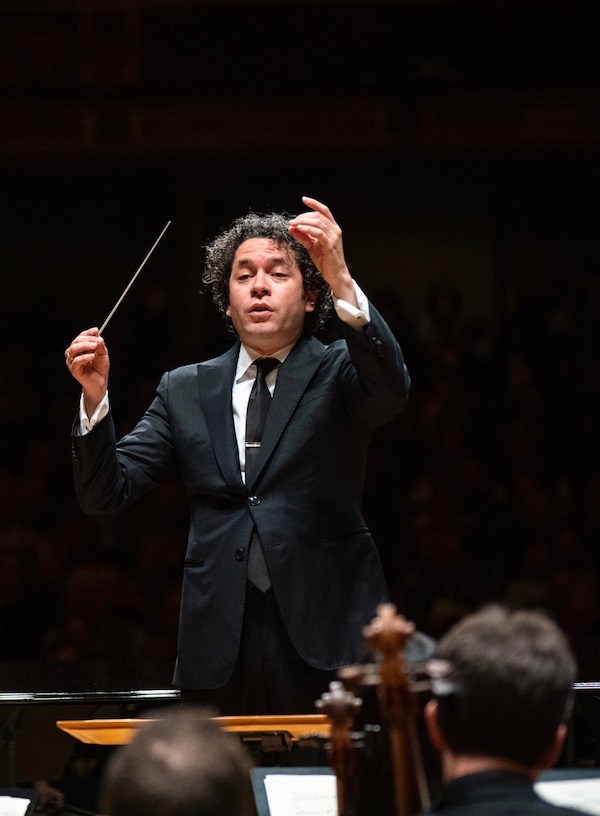
The Los Angeles Philharmonic’s November visit to Symphony Hall was among the year’s finest concerts. Simply put, it lacked nothing, either programmatically or in performance. To open, Gustavo Dudamel led a bracing, vibrant performance of Alberto Ginastera’s Variaciones concertantes. A thundering, visceral account of Stravinsky’s Rite of Spring closed the afternoon.
But the highlight came in the middle with the local premiere of John Adams’ Must the Devil Have All the Good Tunes? The new piano concerto was written for Yuja Wang, who gave as nimble-fingered, probing, and invigorating a performance of this fresh score as one might have hoped. With its echoes of funk, jazz, and Medieval music Adams’ concerto proved a searching, timely, dark-hued knockout. (JB)
3. Steve Reich’s Drumming. Sō Percussion.
Sō Percussion presented a rare event with the performance of Steve Reich’s Drumming in March. This 90-minute work, inspired by African drum music is imbued with a sense of ritual. As performed by the percussion quartet, the music mesmerized in its subtle transformations of rhythm and instrumental color. But what the ensemble unerringly captured was the combination of mystery and power, elements that made Reich’s masterpiece into an almost spiritual experience. (AK)
4. Music of Hailstork, Price, Ellington and Sierra. James Carter and Boston Symphony Orchestra/Thomas Wilkins.
True, there was a bit of a dutiful quality to the BSO program spotlighting music by composers of color and this March celebration of works by three African-American and one Puerto Rican composer was inexplicably a one-off event. But what marvelous pieces and performances. There was Adolphus Hailstork’s spirited An American Port of Call. And an arrangement of three movements from Florence Price’s neo-Dvořákian Symphony No. 3. Duke Ellington’s suavely raucous A Tone Parallel to Harlem capped off the night. In the middle came soloist James Carter playing the daylights out of Roberto Sierra’s wildly inventive concerto. He followed up with a sensational solo encore of “Lift Ev’ry Voice and Sing,” which brought the packed house down. (JB)
5. Bryce Dessner’s Triptych. Roomful of Teeth. Celebrity Series.
With their themes of overt sexuality and sadomasochism, the photographs of Robert Mapplethorpe push at the very limits of what is obscene. That was subject explored in the Celebrity Series presentation of Bryce Dessner’s Triptych, a musical drama reflecting Mapplethorpe’s XYZ portfolios that came to Boston via Arts Emerson in October. Dessner’s Renaissance style polyphony and episodes of driving minimalism set the scene for probing questions about what is considered acceptable art. The vocal ensemble Roomful of Teeth performed this 90-minute spectacle with colorful sonorities and sensitivity to the audacious sexual imagery that relayed a sense of both the sacred and profane. (AK)
6. Music of Chopin, Ravel and Stravinsky. Beatrice Rana. Celebrity Series.
Among the finest recitals of the year was Beatrice Rana’s February Celebrity Series debut at Pickman Hall. Her program consisted of just three pieces—Chopin’s op. 25 Études, Ravel’s Miroirs, and Guido Agosti’s arrangement of three movements from Stravinsky’s The Firebird. But the Italian pianist offered spades of technical brio, expressive nuance, and discreet shadings of color, Rana showing herself as of the most naturally compelling and dynamic artists of her young generation. (JB)
7. Bruckner’s Symphony No. 9. Andris Nelsons and the Boston Symphony Orchestra.
The symphonies of Anton Bruckner remain a specialty for Andris Nelsons, and recent seasons have featured him leading the Boston Symphony Orchestra in the composer’s Third, Fourth, and Seventh Symphonies. Yet Nelsons’ reading of the unfinished Ninth Symphony carried dramatic intensity straight through Bruckner’s final work, and the sublimity reached in the finale made this performance some of the year’s best. (AK)
8.“Left Dreaming” program. New England Philharmonic/Richard Pittman.
Richard Pittman and the New England Philharmonic opened their 2019-20 season in typically refreshing style in October, pairing 20th-century cornerstones by Arnold Schoenberg and Maurice Ravel with stirring new works by Hannah Lash and Hilary Purrington. The night’s most moving score, though, came from the pen of Gunther Schuller: his The Past is in the Present, a 1994 elegy for his wife, Marjorie, touched all the bases—sorrow, anger, resignation, bittersweet joy. That Schuller’s work was delivered with such sensitivity and energy by the semi-professional NEP is just another feather in their (and Pittman’s) cap. (JB)
9. Joyce DiDonato. Celebrity Series.
Any singer will recall the initial rush of excitement when they first opened the Twenty-Four Italian Songs and Arias, a collection of music that continues to be standard fare for school recitals. But Joyce DiDonato brought a new vigor to this repertoire in her belated Celebrity Series debut earlier this year. Accompanied by a jazz combo, DiDonato retooled these familiar songs with the elegance and poise of jazz standards. Her colorful vocal technique, well suited to the gentle scoops, glissandos, and even tasteful Louis Armstrong growls, showed the remarkable versatility of this justly celebrated American mezzo-soprano. (AK)
10. Music of Barber, Langer, Rossini, and Gandolfi. Boston Symphony Chamber Players.
The Boston Symphony Chamber Players’ March concert brimmed with substance and variety—and was faultlessly executed, to boot. Elena Langer’s Five Reflections on Water, conducted by Ken-David Masur, was written in the aftermath of the young composer’s battle with cancer, and proved an adroit, touching meditation on water imagery, full of life, personality, and color. Michael Gandolfi’s charming Plain Song, Fantastic Dance rollicked and gamboled. Gioachino Rossini’s cello-and-bass Duetto was fleet and agile. And Samuel Barber’s Summer Music reminded all what a brilliant, too-often overlooked master he was. (JB)
Honorable Mentions
Baritone Thomas Hampson and bass-baritone Luca Pisaroni came to Boston for “No Tenors Allowed,” a duo recital for the Celebrity Series in February. The related opera singers (Pisaroni is Hampson’s son-in-law), tackled some of the most dramatic arias in the repertoire, including scenes from Mozart’s Don Giovanni and Verdi’s Don Carlo. Yet the recital also brought radiance and humor as well. Cole Porter’s “Night and Day” and Harold Arlen’s “Somewhere Over the Rainbow” featured the singers in moments of melting lyricism. The two hilariously tried to upstage one another in their encore of Irving Berlin’s “Anything You Can Do” from Annie, Get Your Gun. (AK)
The enterprising Semiosis Quartet shed light on music by American women in a recital this summer. Headlining this eclectic program, funded by a grant from the American Music Project, was Florence Price’s String Quartet in G major, a work that featured the musicians in a warm style that recalled Dvořák. The Semiosis Quartet also brought verve and precision to Ellen Taaffe Zwilich’s String Quartet No. 2 and Caroline Shaw’s Valencia, a short work that spun ever forward with a zesty groove. Shelley Washington’s Say, as played by the musicians, conveyed the lingering tension of race relations in the United States, and Ruth Crawford Seeger’s String Quartet 1931 featured the quartet deftly navigating the thorny dissonances and astringent textures with precision. (AK)
Xavier Foley’s April recital at the Isabella Stewart Gardner Museum offered a rare solo showcase for the double-bass. Foley’s musicianship and personality freed the bass from its orchestral moorings, and the young musician demonstrated the range of expression and technical fluidity possible on his instrument as well as its expected sheer power. A mix of familiar works were given a refreshing voice, such as a transcription of Schubert’s Arpeggione Sonata, and contemporary pieces like the soloist’s own “Star” Sonata added further variety to the program. (Andrew J. Sammut)
Most Unusual Repertoire
Karlheinz Stockhausen’s Klang shows a composer pushing at the very boundaries of comprehensibility. The set of twenty-four chamber works, which Stockhausen left incomplete at his death in 2007, were intended to capture each hour of the day, with some reflecting his belief in celestial intelligence. (AK)
This past February, members of Bent Frequency Duo Project and the Callithumpian Consort offered three works from the series that shed new light on this provocative composer. As revealed in this recital, Stockhausen’s music ultimately remains a theatrical experience. (AK)
Best Musical Discovery
At the Rockport Chamber Music Festival this past summer, violinist Philippe Graffin offered his own reconstruction of a lost Violin Sonata by Eugene Ysaÿe. This Seventh Sonata had been left incomplete in the composer’s sketchbooks, and in its American premiere, Graffin found the Bachian severity locked within its dazzling technical flourishes. The performance left one to realize that there may yet be musical treasures buried in Ysaÿe’s—or indeed any composer’s—dusty manuscripts. (AK)
Worst Musical Discovery
As Andris Nelsons’ multi-season survey of Shostakovich’s symphonies with the Boston Symphony Orchestra draws to a close, it’s hard to ignore the feeling that the most problematic works have been saved for last. This fall brought two of the composer’s most tub-thumping scores—the Symphony No. 12 and Symphony No. 2, To October, both of which pay tribute in the most unapologetic way to Vladimir Lenin. Though played expertly by the Boston Symphony Orchestra, these works remind listeners that the composer—who is often lauded in the West as a secret critic of the Soviet regime—was often all too eager to follow the party line. (AK)
Best Birthday Bash
The Boston Symphony Orchestra rang in John Harbison’s 80th birthday with a performance of his Symphony No. 2 this past January. Cast in a taut form, Harbison’s score moves well beyond the introspective style of his First Symphony. Moreover, the work bears the contrasting colors of an expressionist painting, and Andrew Davis led a memorable performance that allowed for its pent-up drama to unfold naturally. (AK)
The following weekend, the Boston Symphony Chamber Players offered four of Harbison’s chamber works in recital. The highlight was Harbison’s Wind Quintet, which featured the Chamber Players revealing all its subtle shades of emotion with grace and conviction. (AK)
Best Example of Music as Social Outreach
This past fall, Shelter Music Boston introduced a new mini-opera by Francine Trester to homeless shelters around Boston. Florence Comes Home, which details the recent discovery of Florence Price’s music at an abandoned house in Chicago, was not only sung and performed with aplomb, it made the subject of musical discovery resonate with people from all walks of life. (AK)
Posted in Articles
